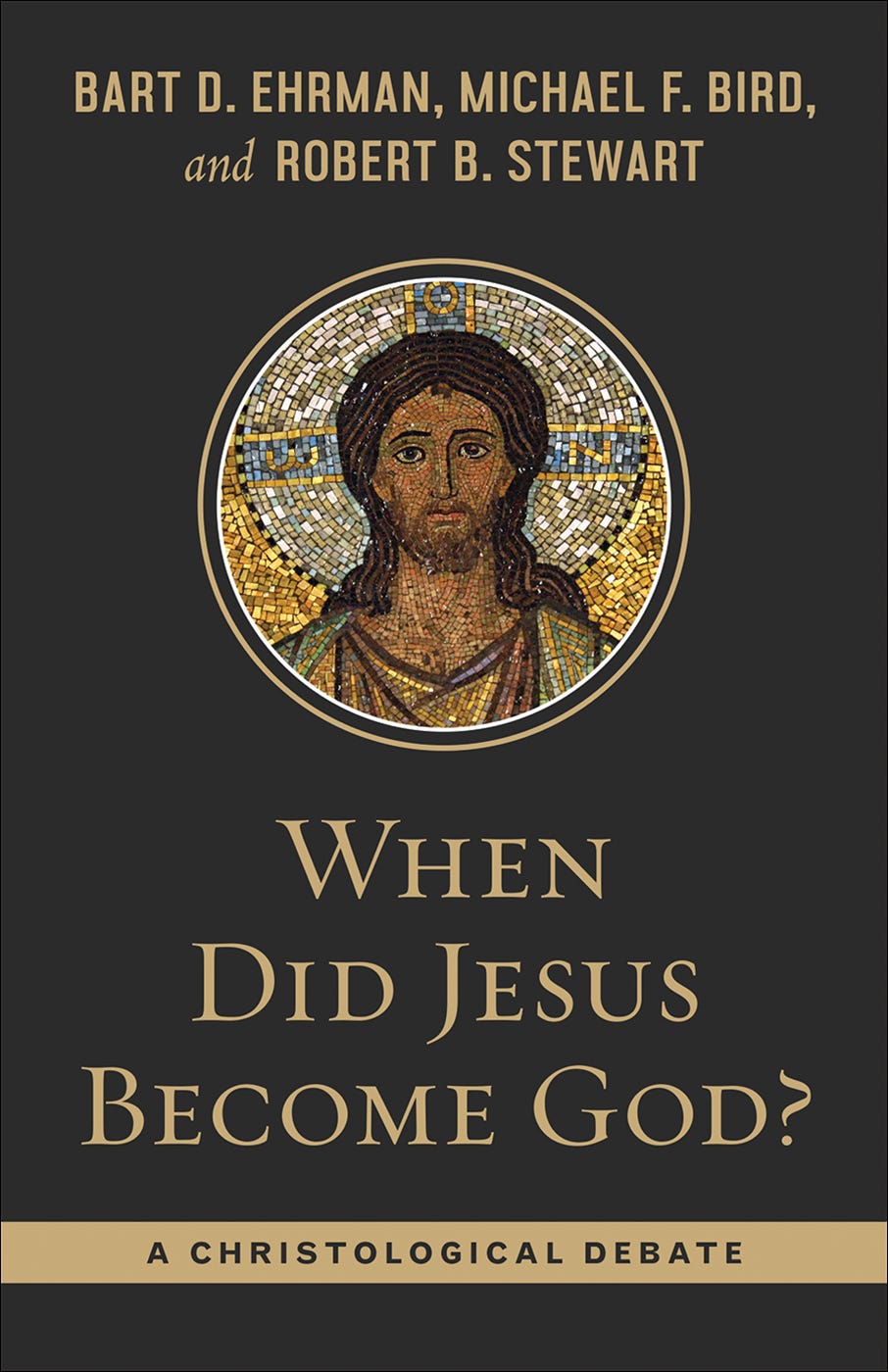Dr. Bob Stewart (NOBTS) has put together the proceedings of the debate I did with Bart Ehrman into a remarkably accessible and enjoyable volume.
When Did Jesus Become God? A Christological Debate Available 25 October 2022!
How did early Christians come to believe that Jesus of Nazareth was the divine Son of God? This is the central question in this book. When Did Jesus Become God? is a transcribed conversation between Bart Ehrman and Michael Bird, with a helpful historiographic introduction by Robert Stewart that helps readers understand the conclusions reached by Ehrman and Bird.
Ehrman contends that neither Jesus himself nor the apostles believed that Jesus was divine during Jesus’ life; it was only after Jesus was crucified and the apostles began to have visions and revelations that they became convinced that Jesus was a godlike figure who was sent by God. Over an extended period of time, the early church solidified its belief that Jesus was “God”—first, with an inventive claim that Jesus was exalted to divinity, then later by seeing him as a preexistent angel become human. Bird disagrees. Based on different historiographic criteria and different readings of Scripture, he asserts that Jesus himself claimed to be the divine Son during his lifetime and that many of the apostles believed Jesus to be identified with God’s own prerogatives and identity. In Bird’s account of the early church, Jesus was the preexistent Son of God from the beginning, who then became human, exercised the role of Israel’s Messiah, and was exalted as God the Father’s vice-regent.




